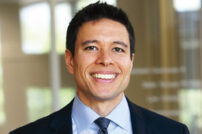
August 25, 2020—
The Center for Law, Brain & Behavior at Mass General Hospital, in partnership with the University of Minnesota Law School and the MacArthur Foundation Research Network on Law and Neuroscience based at Vanderbilt Law School, has been awarded a new grant from the Dana Foundation to support the curation and dissemination of research and legal cases at the intersection of law and neuroscience.
Attorneys and legal scholars are increasingly recognizing the implications of advances in neuroscience for doctrine and practice in areas such juvenile and emerging adult justice, criminal sentencing, brain injury litigation, elder justice, evidence law, disability law, and much more.
With this new support from the Dana Foundation, more professors and practitioners will be able to stay updated on these developments through three complementary streams: the Law and Neuroscience Bibliography, founded and hosted by the MacArthur Foundation Research Network on Law and Neuroscience; the Neurolaw News, an email newsletter, providing critical updates in the bibliography, events, opportunities, and also curated by the Research Network; and a new Case Updates series disseminated by the MGH Center for Law, Brain & Behavior.

Providing leadership for this unique partnership are Professors Francis X. Shen and Owen D. Jones. Co-authors, along with Vanderbilt neuroscientist Jeffrey Schall, of Law and Neuroscience (2nd ed., 2020), Shen and Jones are amongst the nation’s leading authorities on neurolaw.
At Vanderbilt, Prof. Jones is the Glenn M. Weaver, M.D. and Mary Ellen Weaver Chair in Law, Brain, and Behavior; Professor of Law; Professor of Biological Sciences; and Director, MacArthur Foundation Research Network on Law and Neuroscience.

Dr. Shen the Executive Director of the MGH Center for Law, Brain & Behavior, Instructor in Psychology at Harvard Medical School, Senior Fellow in Law & Applied Neuroscience at the Petrie-Flom Center at Harvard Law School, and Executive Director of Education & Outreach for the MacArthur Foundation Research Network on Law and Neuroscience. He is also is a law professor and faculty member in the Graduate Program on Neuroscience at the University of Minnesota, where he directs the Shen Neurolaw Lab.
“We are very grateful to the Dana Foundation for this support,” said Dr. Shen. “There are many exciting developments happening in the field of law and neuroscience, but few outlets regularly reporting on them. This partnership will allow us to sustain the great work of the Research Network on Law and Neuroscience, while expanding coverage of case developments through the Center on Law, Brain, and Behavior. This is an exciting, innovative partnership.”
The Dana Foundation is a private philanthropic organization dedicated to advancing understanding about the brain in health and disease through research grants and public outreach. The Foundation funds and coordinates programs on a range of brain and brain health topics for diverse audiences, including the globally successful Brain Awareness Week campaign. Its website, Dana.org, offers free articles, fact sheets, and lesson plans about brain function and health, all reviewed and approved by neuroscientists.
About the Partners
The Center for Law, Brain & Behavior at Mass General Hospital puts the most accurate and actionable neuroscience in the hands of judges, lawyers, policymakers and journalists—people who shape the standards and practices of our legal system and affect its impact on people’s lives. The Center provides expert training, tools and counsel, helping members of the legal community understand and apply the most relevant brain science to the cases, courtroom procedures and policies they influence. Since its founding in 2008, CLBB has demonstrated the clear benefits of accurately applied neuroscience: better decisions aligned with science lead to better outcomes aligned with justice.
The Research Network on Law and Neuroscience, supported by the John D. and Catherine T. MacArthur Foundation, addresses a focused set of closely-related problems at the intersection of neuroscience and criminal justice: 1) investigating law-relevant mental states of, and decision-making processes in, defendants, witnesses, jurors, and judges; 2) investigating in adolescents the relationship between brain development and cognitive capacities; and 3) assessing how best to draw inferences about individuals from group-based neuroscientific data.
The Shen Neurolaw Lab at the University of Minnesota Law School translates advances in brain science into better law and policy. The Lab motto is Every Story is a Brain Story. Recognizing that the promise of brain science must be balanced against the perils of premature and inappropriate uses, the Lab conducts research to better enable lawyers, courts, and policymakers to understand what, precisely, neuroscience can (and cannot) offer.



